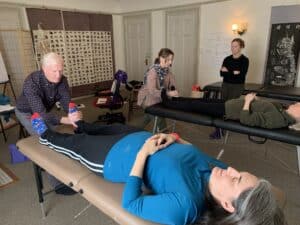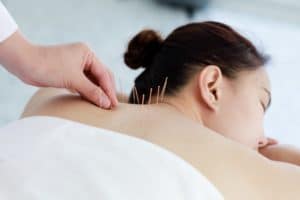Depression is one of the most common mental illnesses, affecting 6.7% (more than 16 million) of American adults each year. Unfortunately, standard treatment options are limited and they are not always effective. Acupuncture for depression offers a safe alternative treatment option, either as a stand-alone practice therapy or combined with antidepressants. It can mitigate the side effects of antidepressant medication. Acupuncture also offers relief from several physical problems that often accompany depression, such as headaches, chronic pain, stomach problems, hormonal imbalance and fatigue.
What is Depression?
Western medicine defines depression as a common but serious mood disorder. Clinical depression and major depression disorder (MDD) both cause severe symptoms that affect how you feel, think, and handle daily activities, such as sleeping, eating, or working. To be medically diagnosed with depression, the symptoms must be present for at least two weeks. Signs of depression may include:
- Persistent sad, anxious, or “empty” mood
- Feelings of hopelessness or pessimism
- Irritability
- Feelings of guilt, worthlessness, or helplessness
- Loss of interest or pleasure in hobbies and activities
- Decreased energy or fatigue
- Moving or talking more slowly
- Feeling restless or having trouble sitting still
- Difficulty concentrating, remembering, or making decisions
- Difficulty sleeping, early-morning awakening, or oversleeping
- Appetite and/or weight changes
- Thoughts of death or suicide, or suicide attempts
- Aches or pains, headaches, cramps, or digestive problems without a clear physical cause and/or that do not ease, even with treatment
How is Depression Different From Grief or Sadness?
Grief or sadness are not the same as depression. Grief is a natural and healthy emotional response to loss. Each person is unique in how they grieve, and grief may share some common features with depression. However, grief and depression are different in important ways.
In grief, painful feelings of loss and sadness tend to come in waves, intermixed with more positive memories of what was lost. Self-esteem is not typically diminished by grief. Also, grief does not last forever. It is a process that the person eventually moves through.
In clinical depression, on the other hand, the sadness and negative feelings may persist unabated for weeks. It may seem to the person that there is no end, and feelings of worthlessness are common.
Why Does Someone Become Depressed?
Depression is complicated. Multiple factors can play a role in developing depression. Genetic, biochemical, and physiological factors account for some part of the puzzle.
For instance, if one identical twin has depression, the other has a 70% chance of having the illness sometime in their life. On the other hand, if twins grow up in the same family, environment may be part of the cause in addition to genetic predisposition.
Social and Environmental Factors In Depression
Continuous exposure to violence, neglect, abuse, or poverty may make some people more vulnerable to depression. Major life changes, trauma, or stress can bring on depression. Chronic pain, illness, and certain medications may also play a role.
Biochemical and physiological changes also happen in response to environmental factors and stress, so it is not clear which is the cause and which is the effect.
Postpartum Depression
Some women are at risk of prolonged depression after childbirth, due in part to hormonal imbalances. Chronic sleep deprivation caused by having to take care of a new baby can lead to physical discomfort and exhaustion, which can contribute to the symptoms of postpartum depression.
Depression and Gender
Between 10% and 25% of women will experience an episode of major or clinical depression at some point in their life. In fact, women are twice as likely to develop depression as men are. Furthermore, depression tends to be associated with different factors in men as compared to women. Depressed women are less likely to abuse drugs and alcohol, but they are more likely than men to have eating disorders or anxiety.
While there may be a psychological physiological or hormonal component that puts women at greater risk for developing depression, it would be a mistake to attribute depression in women simply to biology. Women are more likely to be victims of violence and abuse, live in poverty, experience pay discrimination, and be subjected to harassment in the workplace. All of these social factors that disempower women are perfectly sufficient reasons to become depressed.
Standard Treatment Options: Benefits and Drawbacks
There is no single best way to treat depression. Every person is different. Conventional treatment options usually include some form of talk therapy (cognitive behavioral therapy, psychodynamic psychotherapy, etc.) and one more more pharmaceutical medications. Often, talk therapy and medications are used together.
Medications for depression can have significant drawbacks. In many cases, they are prescribed by a primary care physician, not a psychiatrist, and the patient receives a limited diagnosis before being put on medication. There can be many undesirable side effects, ranging from sexual dysfunction to suicidal behavior, as well as physical symptoms like muscle twitching, skin rashes, insomnia, and blood clotting issues. Some patients experience severe withdrawal symptoms and find they can no longer quit when they do not need the drugs.
Fortunately, there is growing recognition within the mental health community of the value of body-mind therapies like acupuncture and the benefits that personal wellness habits, including nutrition and exercise, can have for depression and mental health in general.
Many people (about 20% of outpatients with depression in the US) are already using complementary and alternative medicine (CAM) therapies, including acupuncture for depression, so more research and understanding of these therapies is warranted.
Research on Acupuncture for Depression
There are many ways acupuncture for depression can help, either on its own or in combination with other therapies. In addition to relieving depression, acupuncture can mitigate the side effects of antidepressants, help combat withdrawal symptoms for those tapering off antidepressants, and treat depression-related conditions such as sleep disorders, anxiety and pain.
Acupuncture for depression has been shown to be effective on its own, and has no side effects. Researchers from Jinan University in China recently found that acupuncture slightly outperforms the drug fluoxetine (Prozac) for the treatment of depression (Wei et al., 2013). Furthermore, acupuncture for depression demonstrated a higher cure rate, and those who received the fluoxetine treatment experienced a significant rate of adverse reactions.
A major review article in the Canadian Journal of Psychiatry found acupuncture to be “generally beneficial, well-tolerated and safe” as a stand-along therapy for major depressive disorder (MDD). Acupuncture was also found to be effective in augmenting the effects of antidepressants, and providing relief for those who do not respond well to antidepressants. Results of initial studies are promising, and further research is needed, especially in recurrence rates after a depressive episode.
Other studies also show that acupuncture for depression can also be used as an adjunctive therapy along with antidepressants. Researchers from the Beijing University of Chinese Medicine (Wang et al., 2014) found that acupuncture effectively alleviated depression and anxiety for patients taking the antidepressant Paxil. Acupuncture significantly amplified Paxil’s ability to effectively treat depression and generalized anxiety disorder.
A systematic review and meta-analysis of acupuncture for depression used in combination with antidepressant medication concluded that acupuncture “is effective, has an early onset of action, safe and well-tolerated over the first 6-week treatment period. Moreover, this treatment combination appears to result in greater therapeutic efficacy than SSRI [antidepressant] therapy alone” (Chan, 2015).
Another review and meta-analysis focusing on depression-related insomnia found acupuncture to be effective in improving sleep, on its own or in combination with medication.
And finally, acupuncture for depression may be as effective as counseling for some patients. A study from the University of York in England found that one in three patients was no longer depressed after three months of receiving acupuncture or counseling treatments, in comparison to one in five who received neither treatment (MacPherson, 2013).
Acupuncture for Depression is Effective
Acupuncture for depression is more than just an adjunctive therapy to use when antidepressants do not work. This practice is rooted in a completely different paradigm. It looks at depression from a holistic perspective, treating body, mind and spirit as one. Five Element acupuncture offers healing at a deep level, treating the roots of depression. Acupuncture can also address the physical health issues that often accompany depression, such as insomnia, pain, and hormone imbalances. It’s exciting and comforting to know that mind-body therapies like acupuncture can open up new options for treating depression that we might not have considered before.
Inner Works Acupuncture is a Five Element acupuncture clinic in Portland, Oregon. Call us today at (503) 227-2127 to schedule an appointment.




